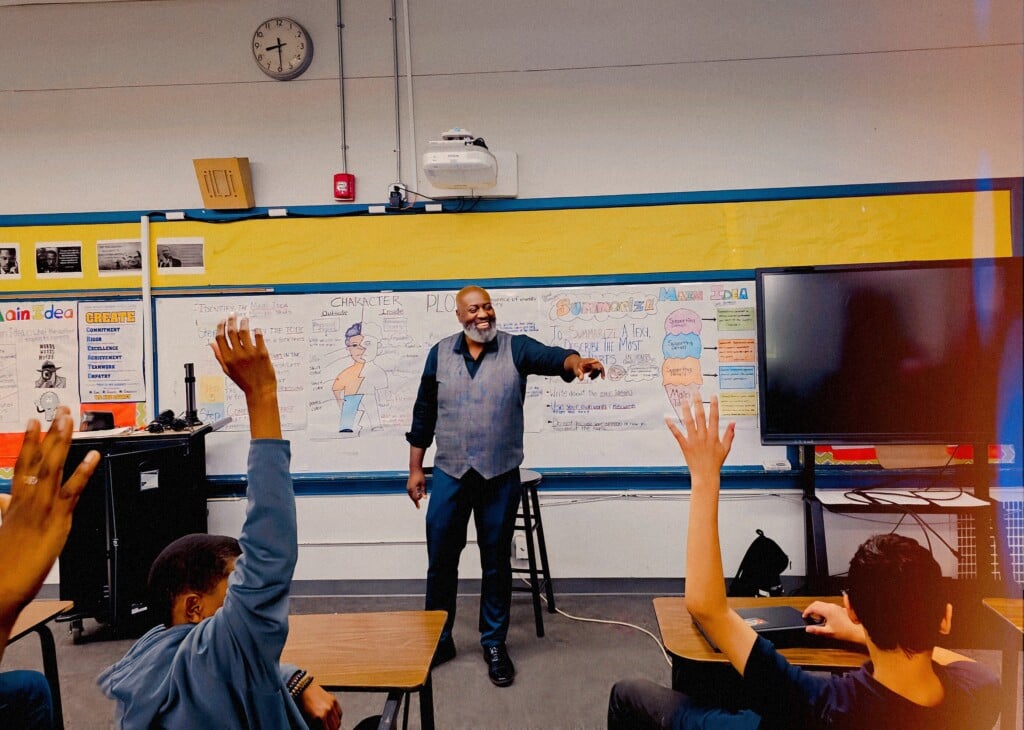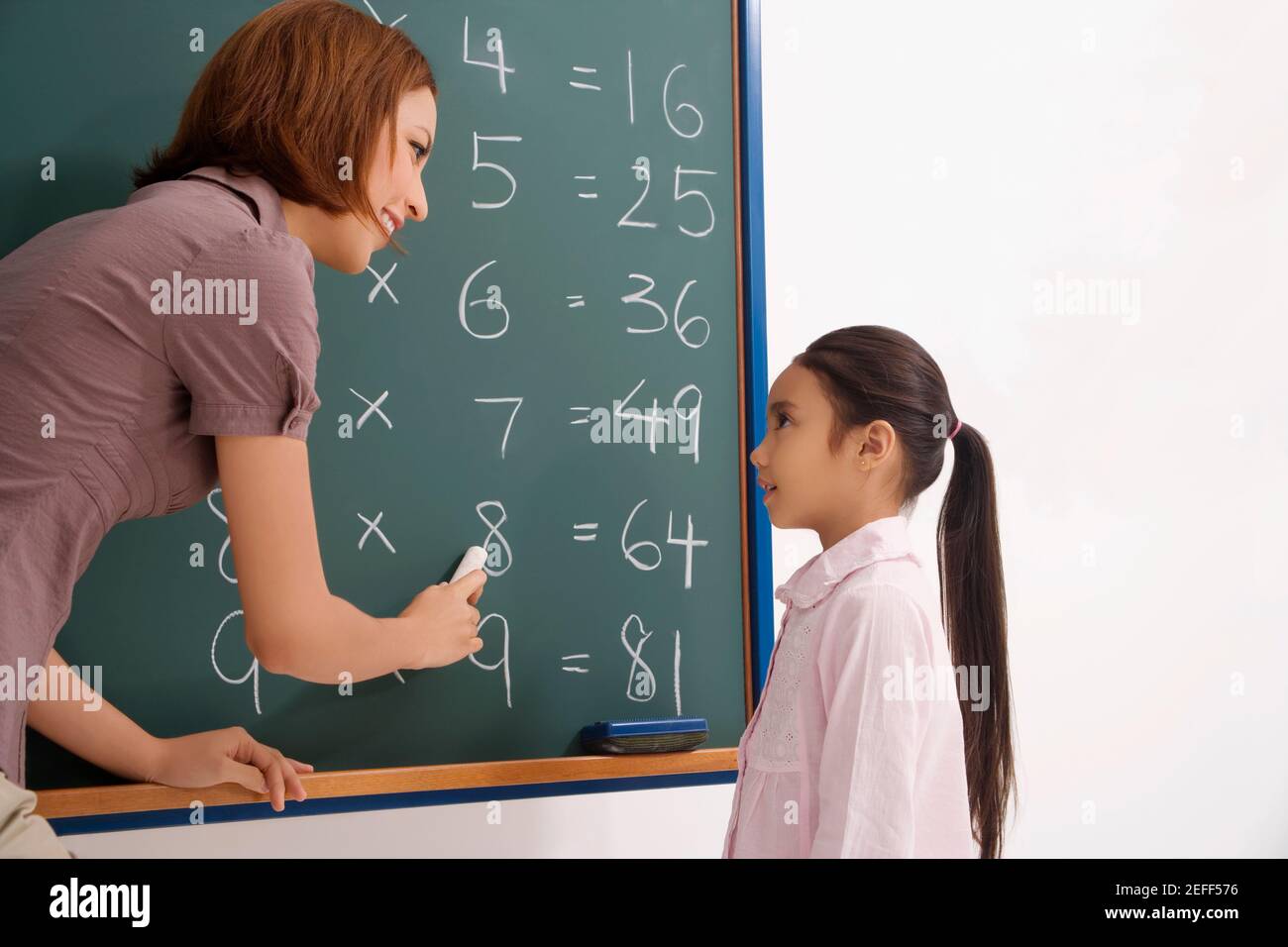Personalized Primary Science Tuition Singapore to Cater to Your Child’s Needs
Wiki Article
Checking Out the Different Teaching Strategies in Key Science Education Today
The landscape of key scientific research education and learning is advancing, with different teaching methods obtaining prestige in modern classrooms. Inquiry-based learning, hands-on experiments, and the combination of technology are redefining exactly how instructors involve young minds. In addition, collaborative strategies and differentiated instruction are being used to deal with the diverse demands of pupils, improving both engagement and understanding. As we analyze these techniques, inquiries develop about their efficiency and the effects for future instructional practices. What might these shifts in method mean for the future generation of students?Inquiry-Based Discovering
Inquiry-Based Learning (IBL) is an instructional method that motivates trainees to check out clinical concepts via questioning, investigation, and hands-on trial and error. This approach emphasizes the duty of students as active individuals in their discovering, promoting vital thinking and problem-solving abilities. By engaging with real-world inquiries, trainees come to be motivated and interested, which boosts their understanding of scientific principles.In IBL, educators function as facilitators, guiding trainees as they navigate their inquiries instead than supplying details directly. This student-centered method enables distinction, suiting various finding out styles and speeds. Trainees develop skills in creating theories, making experiments, and evaluating information, which are vital for clinical proficiency.
Additionally, IBL promotes cooperation amongst trainees, urging them to share searchings for and concepts. This collective inquiry advertises social skills and a sense of neighborhood within the classroom. The procedure of query motivates durability, as pupils discover to welcome failure as a stepping rock toward understanding.
Hands-On Experiments
Hands-on experiments are an essential part of reliable scientific research education, enhancing the principles of inquiry-based discovering. These experiments permit students to engage straight with clinical ideas, fostering a deeper understanding through experiential understanding. By adjusting materials and observing results, young learners can understand abstract theories in concrete means.Such activities promote vital thinking and analytic abilities, as students hypothesize results, conduct experiments, and examine outcomes. This process urges them to ask questions, refine their understanding, and establish a clinical frame of mind. Hands-on experiments can be tailored to diverse understanding designs, guaranteeing that all students have the opportunity to involve meaningfully with the web content.
In addition, hands-on experiments typically urge cooperation amongst peers, promoting team effort and communication skills. Operating in groups makes it possible for trainees to share ideas, go over searchings for, and discover from each other, which boosts their general educational experience.
Integrating hands-on experiments right into the key scientific research educational program not only improves the finding out atmosphere yet likewise cultivates a long-lasting rate of interest in scientific research. By actively joining their education, pupils are extra most likely to establish a passion for clinical questions that extends beyond the classroom.

Modern Technology Assimilation
Incorporating technology into primary scientific research education and learning has actually become significantly important in fostering trainee involvement and improving discovering outcomes. The usage of digital tools, such as interactive simulations, digital labs, and educational software application, provides pupils with possibilities to discover clinical principles in cutting-edge means. These resources assist in a much deeper understanding of intricate topics by enabling learners to visualize and control variables that would certainly be not practical in a typical class setting.Furthermore, technology combination motivates customized finding out experiences. Pupils can advance at their own rate, taking another look at difficult principles with multimedia resources, which cater to various knowing styles. This flexibility not just sustains individual development however likewise cultivates a sense of freedom in students.
Additionally, modern technology acts as a bridge to real-world science, connecting students with present research study and expert payments. Access to clinical journals and online databases expands trainees' viewpoints on scientific inquiry and promotes vital believing skills.
Collaborative Knowing
Collective learning plays an essential role in primary science education and learning by cultivating team effort and communication abilities among trainees. This method urges students to work with each other, share expertise, and take part in analytic, which improves their understanding of scientific principles. By participating in group activities, pupils find out to express their concepts, listen to diverse viewpoints, and bargain remedies, every one of which are crucial abilities in both academic and real-world contexts.
Research indicates that collaborative knowing can bring about enhanced inspiration and engagement in scientific research subjects, as pupils locate pleasure in common experiences (primary science tuition Singapore). Furthermore, this approach prepares trainees for future collective ventures, outfitting them with the skills necessary for effective team effort news in higher education and learning and specialist settings. Inevitably, embracing joint learning in primary science education and learning can substantially enhance the learning experience and promote a deeper understanding of clinical questions
Distinguished Instruction

Set apart instruction can show up in different ways, such as differing the content, procedures, or items of understanding. Teachers may make use of tiered jobs that offer differing degrees of intricacy, allowing students to work at their respective readiness degrees. In addition, flexible grouping techniques can assist in partnership amongst trainees with different capacities, cultivating peer understanding.
Evaluation plays a crucial role in this approach, as it educates direction and assists teachers recognize each trainee's distinct requirements. Formative assessments, such as tests and observations, can assist teachers in changing their techniques to enhance discovering end results. primary science tuition Singapore. Ultimately, by executing set apart instruction in main scientific research education and learning, educators can cultivate an extra equitable and reliable knowing atmosphere, empowering all pupils to reach their full possibility in recognizing clinical phenomena
Final Thought
In summary, the Go Here varied mentor strategies in primary science education, including inquiry-based understanding, hands-on experiments, innovation assimilation, collective knowing, and distinguished guideline, collectively add to a more reliable knowing atmosphere. These approaches promote important reasoning, analytical abilities, and a much deeper understanding of clinical concepts. By implementing these methods, teachers can create supportive and interesting classrooms that resolve the different needs of pupils, eventually promoting a long-lasting passion in scientific research and improving scholastic accomplishment.Inquiry-Based Knowing (IBL) is an instructional approach that urges students to explore clinical principles via questioning, examination, and hands-on testing.Collective understanding plays an essential role in main science education and learning by promoting teamwork and communication skills among trainees.Study shows that collaborative discovering can lead to boosted inspiration and involvement in scientific research topics, as students locate enjoyment in shared experiences.In fostering a comprehensive my website learning atmosphere, separated direction arises as a crucial approach to fit the varied needs and capabilities of students in main science education and learning. Eventually, by applying set apart direction in main science education and learning, educators can grow a much more equitable and efficient learning setting, equipping all trainees to reach their full possibility in recognizing scientific phenomena.
Report this wiki page